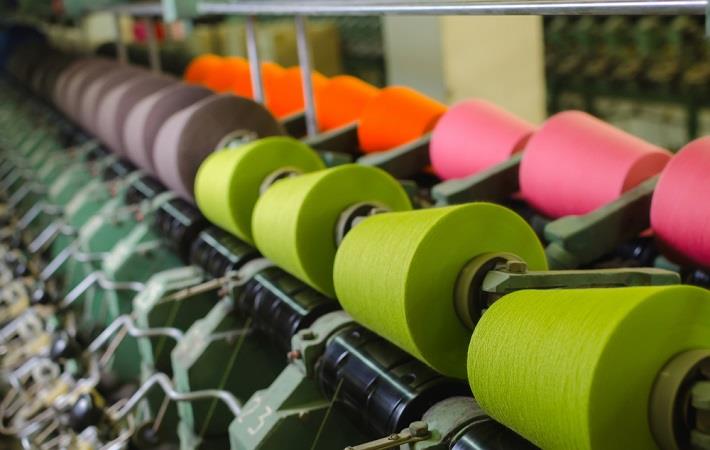Business model needs to be aligned to the 'new normal'

While brands/retailers who have closed their stores or point of sales have no option but to cancel the orders, "manufacturers/suppliers are unable to ship the orders that are not cancelled, during the current situation, which is very uncertain, complex and unprecedented," Indo Count Industries Ltd director KK Lalpuria told Fibre2Fashion. Indo Count has the capacity for end-to-end process including product development and design, sourcing of cotton, spinning, weaving, processing, cut-n-sew, and branding and marketing.
"We have also faced rampant cancellations (of orders) from all sides," concurs Anurag Mohota, director of Gimatex Industries Pvt Ltd, a completely integrated textile facility with ginning, spinning, weaving and processing units under its fold. "The situation is extremely grim and puts the entire textile industry under tremendous pressure. ...Payments from the customers have completely stopped, as everyone is grappling to make ends meet, and firstly pay the people dependent on them, and then if any funds are left, keep some resource in hand for future."
"Besides, there are raw material stocks, in-process stocks and pending outstandings, each of which have an uncertain future," Mohota adds. "All the fixed costs like interest of term loans, working capital, salary, wages, etc are being expected to be borne by the mills in full and the only relief given is a very small moratorium on payment of these interests, for which as well the banks are not fully cooperating. The textile industry was already operating on very thin margins due to the intense competition from domestic as well as international textile players, and with this Covid-19 shutdown may lead to lot of players shutting down, people who were already on the edge."
Adrian Elliot, president (Apparel & Footwear) and head of Group Marketing for Coats Plc, the world’s leading industrial thread company, is optimistic. "The first light could be starting to come through the clouds. China is beginning to open up – albeit slowly. It appears that retailers are starting to look to perhaps reopen stores in Europe and the US towards the end of May. Previously closed factories may well also be able to start up operations. We remain vigilant and prepared for recovery whilst understanding that we will need to align our business model to the ‘new normal’ as the world emerges from this storm."
Mohota suggests that fashion brands/retailers can "innovate to bring back buying in the market, as it will be the single most important factor to revive the industry; reduce fixed costs wherever possible, and try to be asset light for the long term; and re-work on the rentals in big cities and focus on reducing the turnaround times."
Stressing the point that one needs two hands to clap, Lalpuria says, "As the situation has impacted both the parties (buyers and manufacturers) in the business, they should take each other's view in resolving the issues. They should be open for suggestions and see that mutually how they can minimise the loss. They should plan together for the future and see how they can sustain their market share and also build on opportunities."
"Maintain regular and empathetic communication with all stakeholders and work with your suppliers. Work in collaboration to come through this crisis together," echoes Elliot. "And even in a storm there are still opportunities – like working together in partnerships for the greater good. The Gerber PPE Task Force which Coats has just joined as a coalition partner is a great example. It empowers manufacturers to switch personal protective equipment (PPE) production and match supply and demand for critically needed products."
For Viral Desai, director of Zenitex, a job-based textile dyeing and processing unit in Surat, the priorities have changed, and it is now all about saving lives. "Cancellation of orders is never our priority. In fact, our workers, employees and all our suppliers and their families are our priority, their health, safety and happiness is our goal!"
Working closely with its customers, Coats remains "flexible on supply and deliveries to support them through this crisis," assures Elliot.
Talking about the present and future priorities, Lalpuria says, "Our prime objective is to ensure that all our staff and workers are safe including their families and we would take all appropriate steps to see that we secure them. However, once we are allowed to start operations legally, we would convert the work-in-progress to finished form and keep the goods ready for shipment, so we can serve our customers well.
"In addition, we are studying the credit terms and the customers' business in detail and see how we can support the business jointly. We are studying the market closely and would like to ensure that we satisfy all our stakeholders by adapting good risk management policies laid down by our company. Once the market reopens fully, we would bring in new strategies to see how we can safeguard such disruptions in the future and grow our business further."
After restart, Mohota plans to approach customers with the idea of giving them integrated solutions, rather than segmented solutions. He, however, foresees a set of problems for all mills once operations resume. "Lot of skilled operators have gone back to their native places, and they would face huge resistance (at home) to come back to work. In such a situation, post lockdown, it will take time for mills to come back to full production capacity with proper efficiency. This will lead to loss of potential profit from operations.
"Further, since most mills are shutting down for a long duration for the first time, what kind of challenges will be faced in restarting machines smoothly is something that cannot be answered now."
Fibre2Fashion News Desk (RKS)
































-Ltd..jpg?tr=w-120,h-60,c-at_max,cm-pad_resize,bg-ffffff)





.jpg?tr=w-120,h-60,c-at_max,cm-pad_resize,bg-ffffff)
.jpg?tr=w-120,h-60,c-at_max,cm-pad_resize,bg-ffffff)






